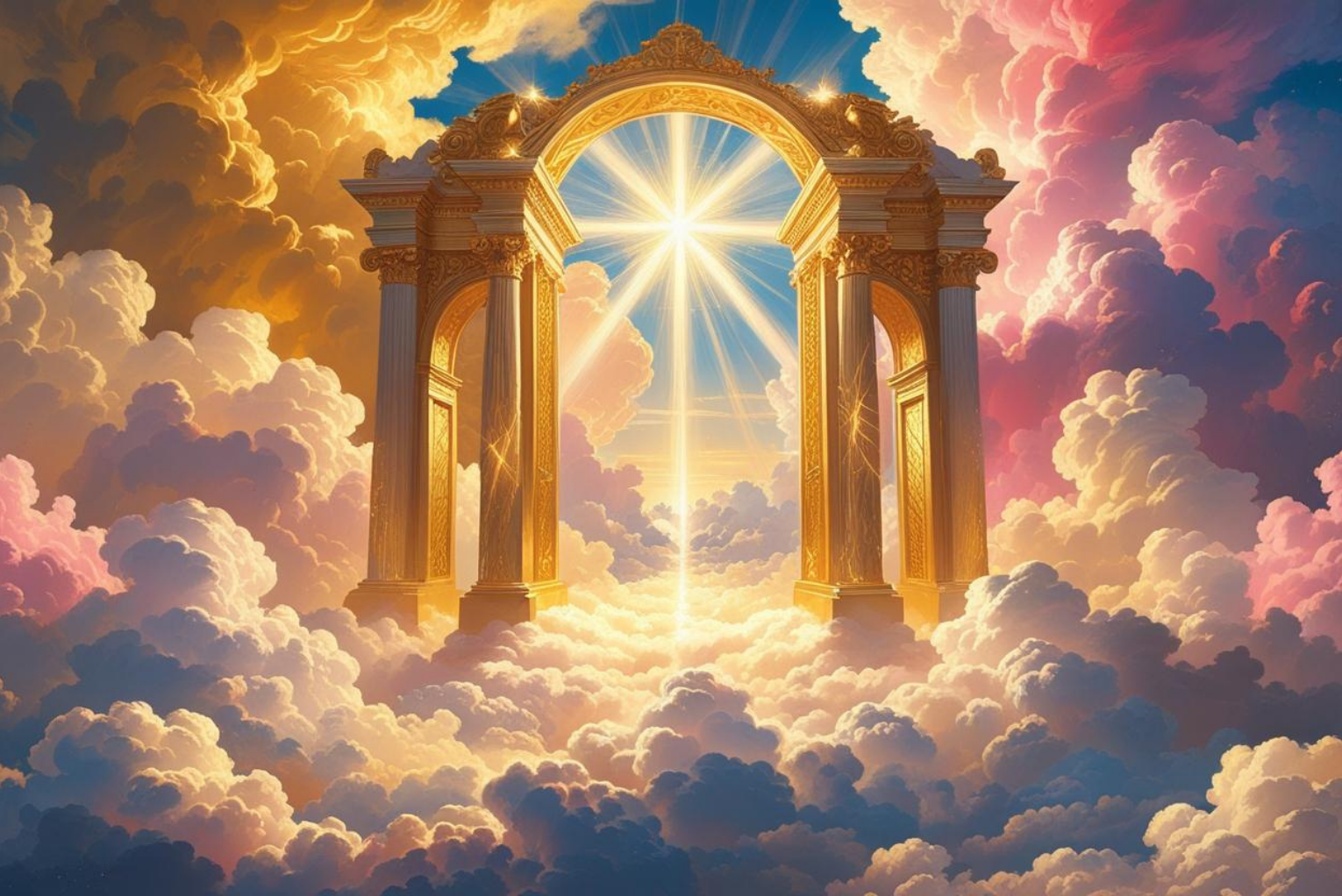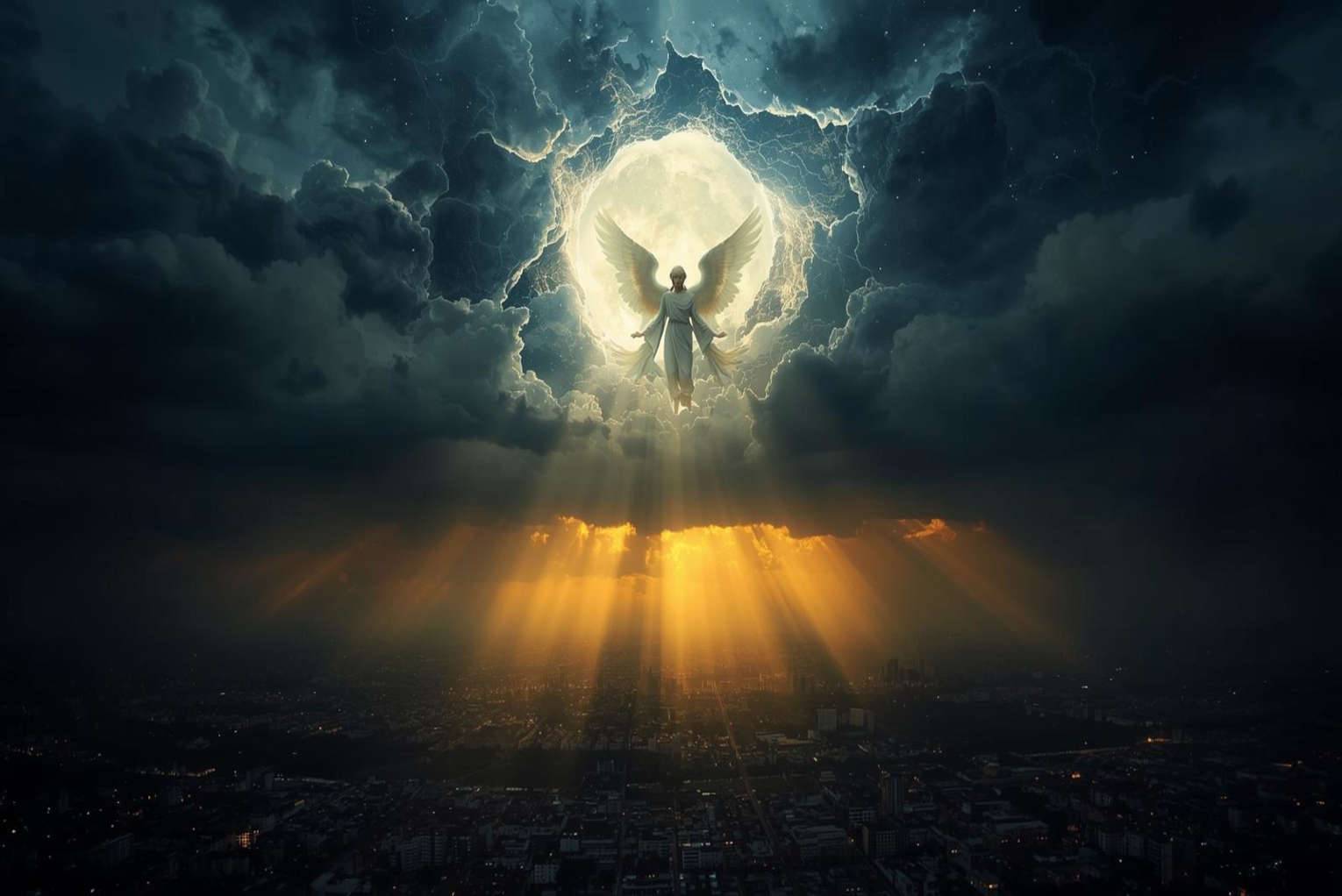Everyone knows the Pilgrims held the first Thanksgiving feast in the New World.
But what you may not know is just why they were so thankful.
It’s because God brought about so many miracles to keep them alive during a terrible time that might well have killed them all.
Radical Faith
Plimoth Plantation is a living history museum just a few miles south of where the Pilgrims’ actual settlement was located.
There re-enactors portray the hardy, thriving Plymouth of 1627, just seven years after the settlers arrived.
Their radical faith in a living God is displayed in regular recreations of a Sunday service.
There a re-enactor portraying Master William Brewster stands praying behind a tall pulpit, reaching his hands high above his head, putting them up among the rafters of the ceiling.
“And let thy Spirit guide us in these and all our actions,” he says, looking heavenward, “for thy glory and the good of thine elect.”
Their beliefs had put them so at odds with the British king and Church of England, in their eyes these Pilgrims had to separate. The New World gave them a place to live out their faith unfettered and free of persecution.
They were unalterably dedicated to the belief that every person could communicate one-on-one with God and that He would answer and lead them.
It took that leading and divine intervention over and over again for them to survive their first, harsh winter of 1620-21 in what would later become Massachusetts.
And it took an unshakeable toughness on the part of these religious Separatists.
Not Smart to Curse Them
Pilgrim re-enactor Leo Martin gives tours in the city of Plymouth, out of the Jenney Museum he helps run.
He said these Pilgrims were not to be trifled with. Martin told CBN News about one sailor on the Mayflower who couldn’t stand the Pilgrims’ constant praying and praising of God.
But this seaman found out it didn’t pay to curse them or their God.
“He said to them, ‘I cannot wait until you fools die and I can put your bodies in a shroud and dump you into the ocean, you hymn-singing puke-stockings,” Martin related.
“Well, the next week he died. The Pilgrims put his body in a shroud and dumped him into the ocean. And to this day nobody knows what killed him,” he added.
But many of the Pilgrims would also soon meet death as the Mayflower landed way off-course to the north of their intended target near the Hudson River.
The winter assaulting the Cape Cod region was so harsh and bitter, it killed half of these tough settlers.
Sacrificed Themselves
Nearly out of food, they were living on a ration of just five kernels of corn a day—and most of the mothers among them perished because they gave their portions to their starving children.
“Of those 18 married women, 14 died that first winter, sacrificing themselves for the next generation,” Martin said.
The Rev. Paul Jehle does Pilgrim re-enactments and heads up the Plymouth Rock Foundation, which is dedicated to highlighting the Pilgrims’ diehard, flinty faith.
He said the records of those cold, hard days show: “They start talking about two or three people dying a day. So half the company is dead.
“Just month after month, death after death,” Martin added.
But after all that, the survivors were still set on not retreating that Spring with the captain and crew on the departing Mayflower to the Old World.
Not One Pilgrim Went Back
“Capt. Jones said, ‘I’m going back to England. I want you all back on my ship. I can’t leave you here.’ Not one Pilgrim went back,” Martin said.
Though they’d suffered intensely, evidence suggests the guidance of God was still blessing these Pilgrims.
One miracle: they missed a harbor that would have provided all they needed to make a thriving settlement. But it was full of hostile Indians waiting to ambush them.
“Had they gone into that harbor, they would have found what they were looking for, but would have been ambushed by that tribe, and probably killed,” Jehle said.
Led to the Perfect Place
Then as they explored in their 21-foot-long “shallop” boat, they found just above the famous Plymouth Rock a place that perfectly, miraculously met their needs.
A river of fresh clean water, teeming with fish, flowed through. Next to it was a high hill, a perfect location for their cannon, which they soon set to ward off Spanish, French or native enemies.
And since they couldn’t fit plows on the Mayflower, they desperately needed a large, plowed field no longer claimed by anyone. And that’s exactly what they found on the height above Plymouth Rock.
“They find three acres of cleared farmland which the natives have abandoned,” Jehle said.
That’s because a plague had killed most of them.
“Now they’re wiped out by a plague. So no other Indians would come on the property,” Martin said of those unfortunate Indians.
Then Martin told CBN News of one of the strangest occurrences of all: an Indian named Samoset walked up to the settlers and spoke English.
“How you doing? You got a beer?” Samoset said, according to Martin.
Squanto a ‘Providential Instrument’
Samoset had met other Englishmen and learned a bit of their language. But most importantly, he took them to meet a fluent speaker of English, a young brave named Squanto.
He’d been taken captive and made a slave by Englishmen, escaped and learned English while in Britain.
Now he’d returned to the New World, and a friendly chief of the Wampanoag tribe living next to Plymouth, Massasoit, had taken Squanto under his wing.
Squanto was an immense help to the Pilgrims. For one thing, he taught them how to grow the native maize, or corn.
“And it saved them because the wheat, rye and barley they brought with them wouldn’t take to the sandy soil. The corn did.” Martin said.
And he showed them how to use the plentiful fish in the river as fertilizer to make the corn grow well.
“Squanto was this providential instrument used by God, this miraculous instrument, because he became their interpreter,” Jehle said of the English-speaking native.
Squanto helped the settlers find peace with nearby tribes, and the Pilgrims drew up a treaty with Massasoit and his Wampanoags that lasted 55 years—a miracle in itself.
Martin called it “the longest lasting peace treaty in the history of our country.”
Dozens of Unexpected Guests
By the next fall, the crop had thrived enough the Pilgrims decided to celebrate and give thanks to God, inviting Massasoit and his immediate family to come feast with them.
“Unfortunately, no one explained to Massasoit the meaning of immediate family,” Martin said. “He brought 99 braves.”
But they also brought much bounty to the feast, like venison and wild turkey.
The first Thanksgiving went on for three days as English settlers and natives feasted and celebrated side-by-side.
The Pilgrims, though, didn’t forget that starving time that had killed half their number.
At the Heart of Thanksgiving
“Gov. Bradford put five kernels of corn on everybody’s plate and asked everyone there to give him five things they were thankful for that first year in Plymouth,” Martin said. “And that’s what we consider our first Thanksgiving.”
Jehle spoke about how gratefulness was a deeply ingrained value of these Pilgrims.
“They believed this: that God was the provider of everything,” Jehle explained. “You owed everything to your Creator God, and your Redeemer Jesus Christ. And therefore the things that you did have, since you deserved nothing, you are thankful for.”
A couple of years later, the Pilgrims would need yet another miracle to survive as drought hit the Plymouth area.
God came through yet again for the Pilgrims when they gathered on a Wednesday to pray in unity.
Miracle Leads to a Salvation
“And then the answer to prayer comes that night and a gentle rain comes for two weeks and revives the crops,” Jehle said.
A local chief was so awed by this obvious miracle he gave his life to this God who answered the Pilgrims’ prayers.
But maybe the biggest miracle of all is how this small hardy band of Christians set the stage for what would become the freest, most prosperous and, some would say, most spiritual nation on earth, all based on biblical principles.
“They wrote the Mayflower Compact, the first document of self-rule in the country,” Martin said.
A New Society
“Think about it: In human history nobody has the freedom to form a society directly from the Bible in a wilderness, where they didn’t have a king looking over their shoulder saying, ‘No! Do it this way!'” Jehle added.
They birthed the concept of a nation of free people.
Martin said that came from their belief that, “We’re all equal in the eyes of God. We’re all made in His image. And if that is true, nobody has a right to be over anybody else.”
They changed the order of government so it was no longer from the top down, but now came from the bottom up. They expected their leaders not to be lords over the people, but to be their servants.
Where Self-Rule Came From
“Now the Pilgrims figured this: If God figures we’re all valuable and we all have worth, we should certainly figure the same thing. And that’s where self-rule came from. The king shouldn’t be in charge. The people should be in charge,” Martin said.
And because they’d lived so long fighting for their religious and spiritual liberty, they made that liberty a top priority, something reflected in the Bill of Rights when the founding fathers made religious freedom Americans’ first right.
How Abe Lincoln Fits In
Plymouth honors the Pilgrims yearround, but especially during the days before and around the Thanksgiving holiday.
The 2013 celebration included the annual Thanksgiving parade, which is usually second only to the Macy’s Day Parade in attendance.
This year’s commemoration included an Abraham Lincoln re-enactor, since it was Lincoln who in 1863—150 years ago—made Thanksgiving a national holiday.
CBN News interviewed re-enactor Fritz Klein in his Lincoln persona, and asked why the Civil War president made Thanksgiving a national holiday.
“The fact of the matter is,” he answered, “the Almighty deals with us as nations as well as individuals.”
And much of this nation continues to make its gratitude known every year at Thanksgiving to the God whose divine hand guided through terrible trials the brave, determined Pilgrims who went on to father the land of the free.











































